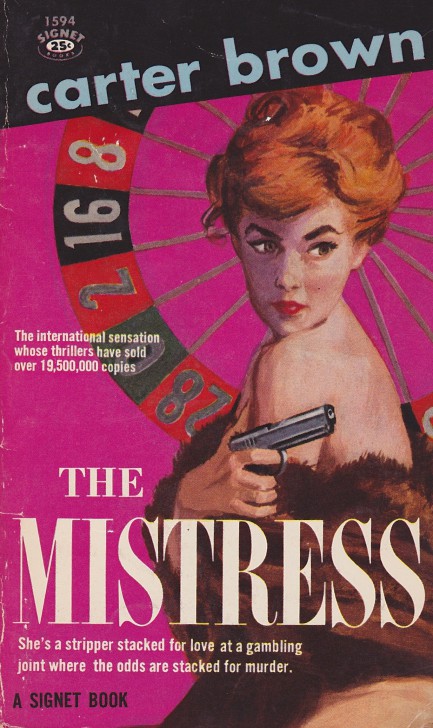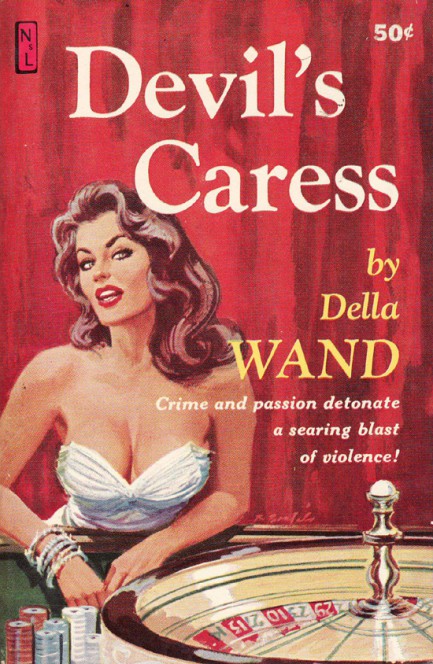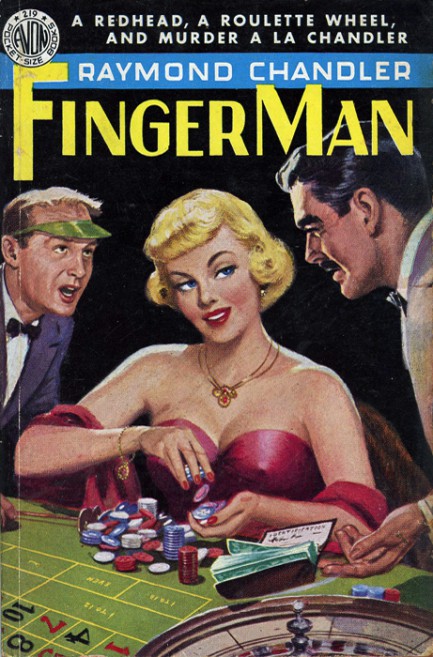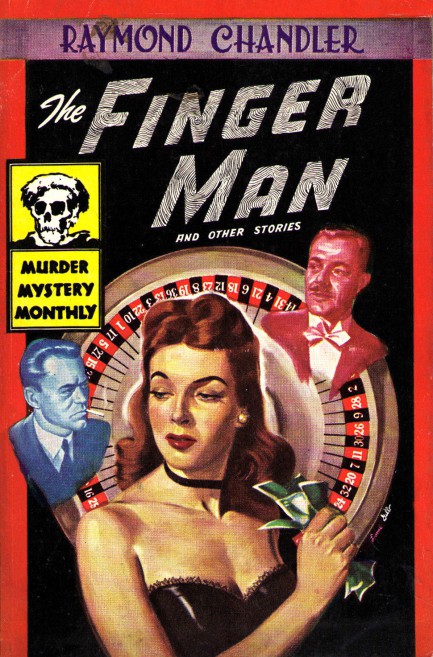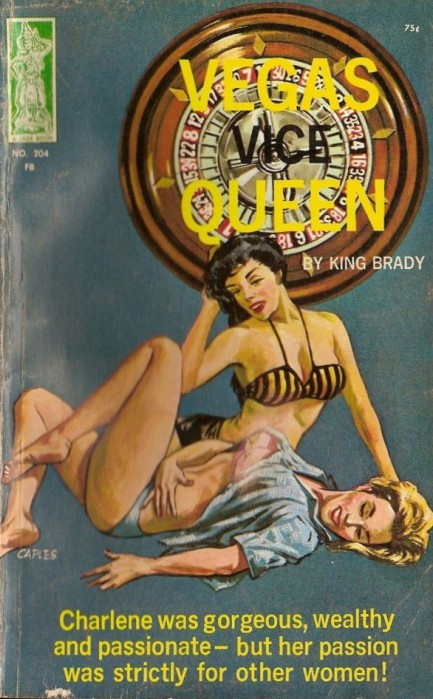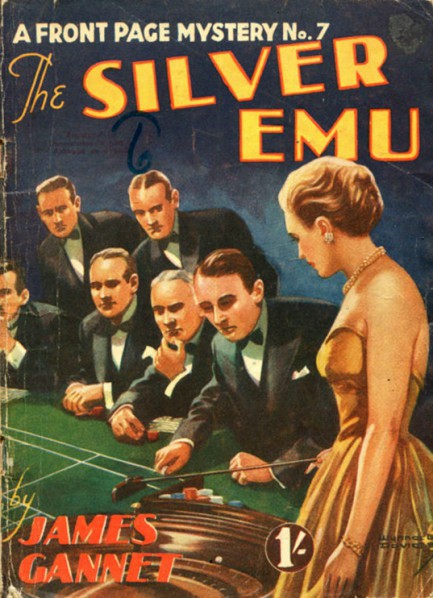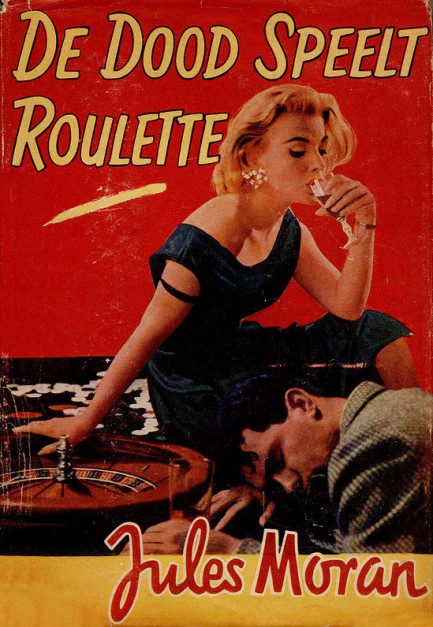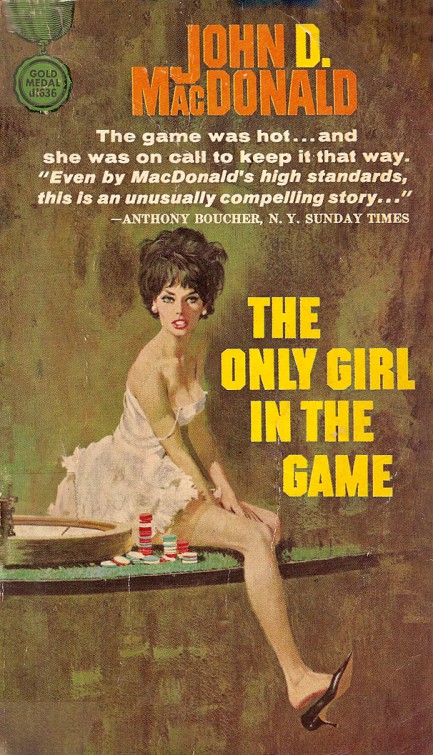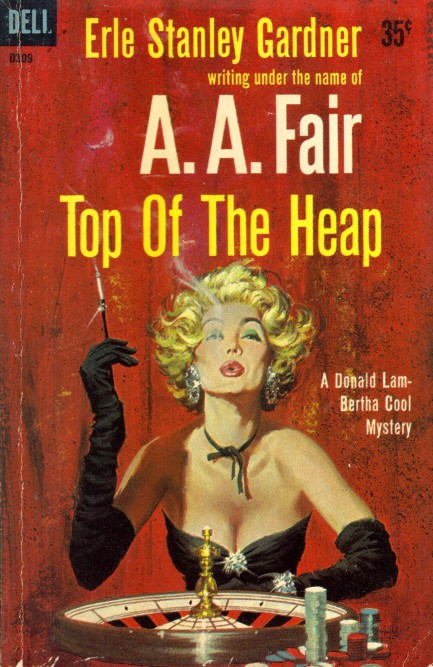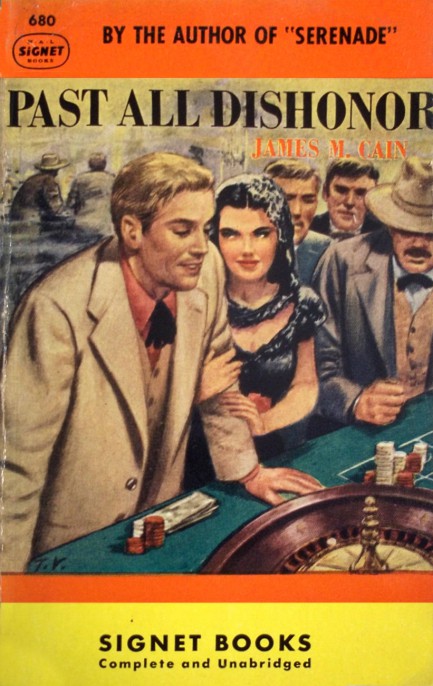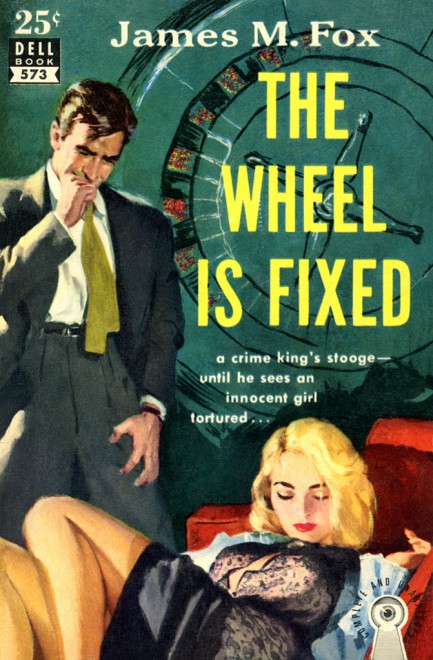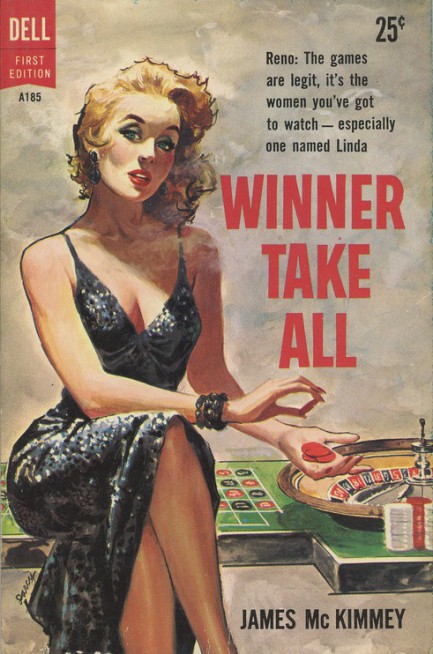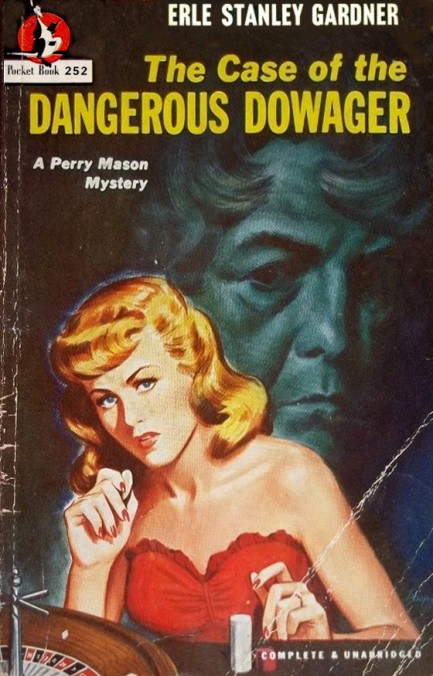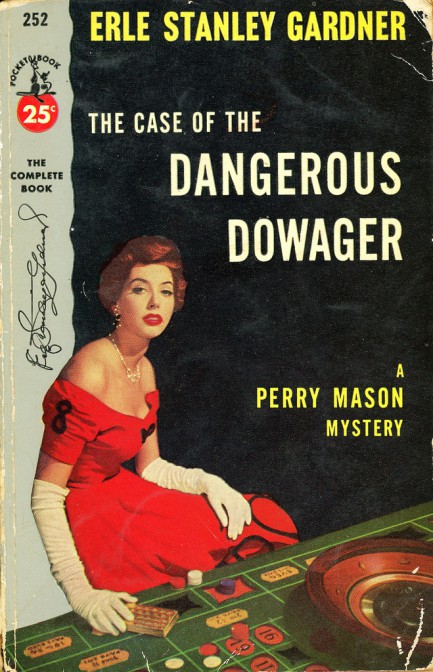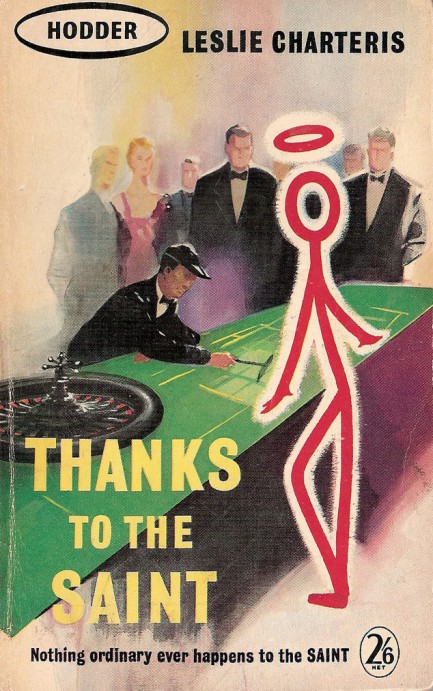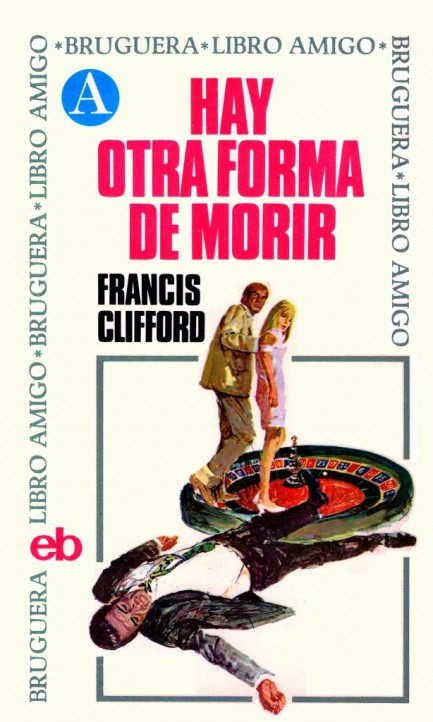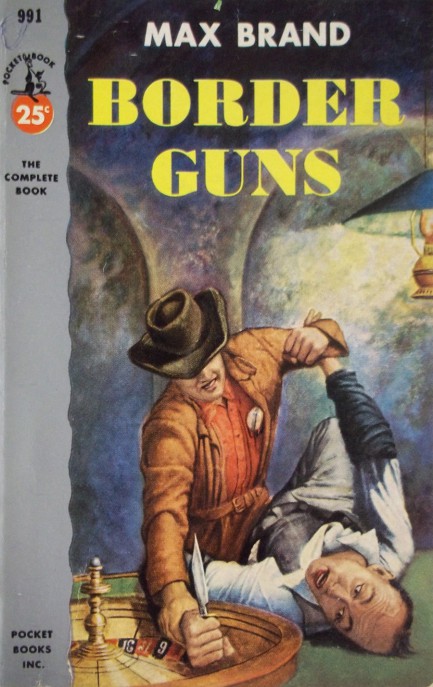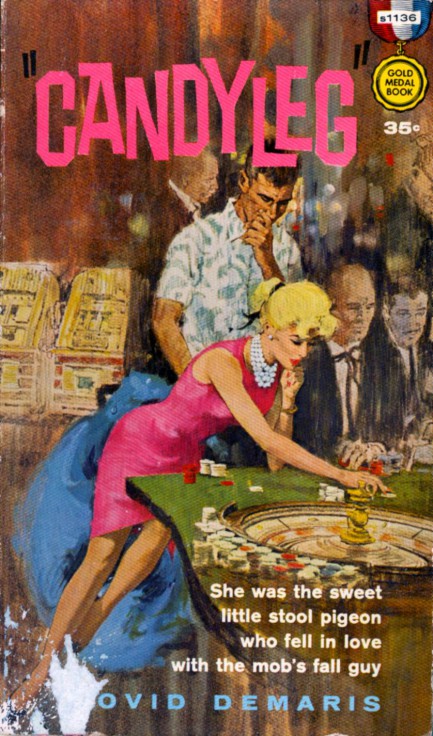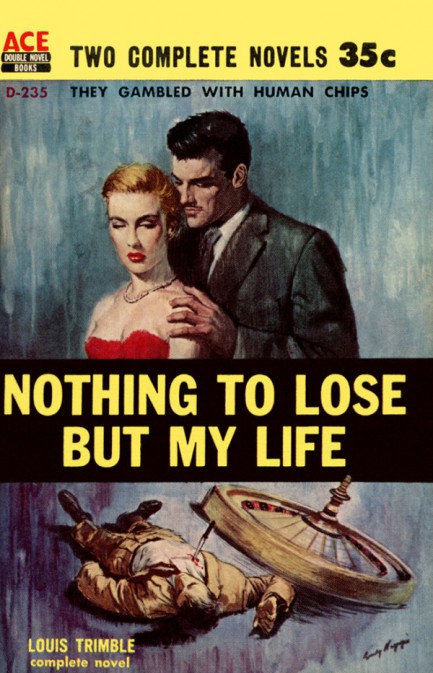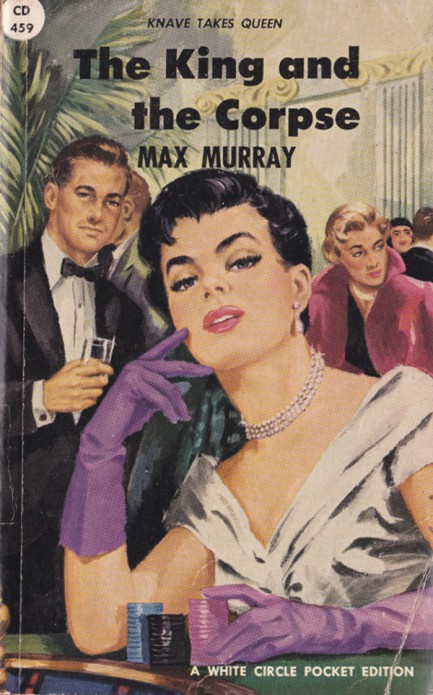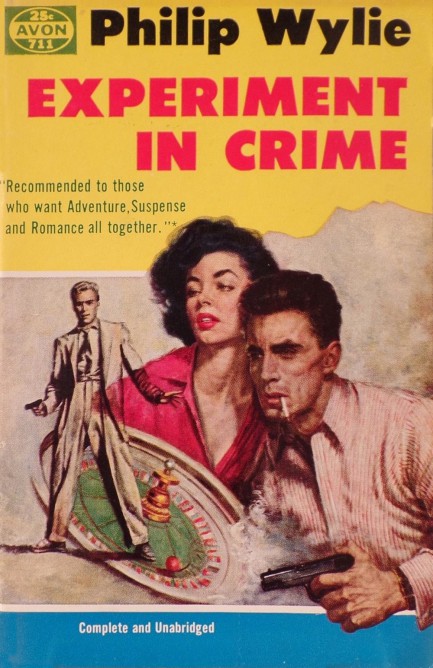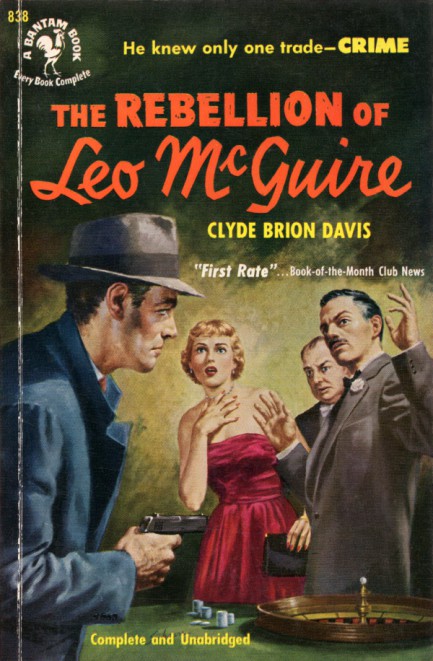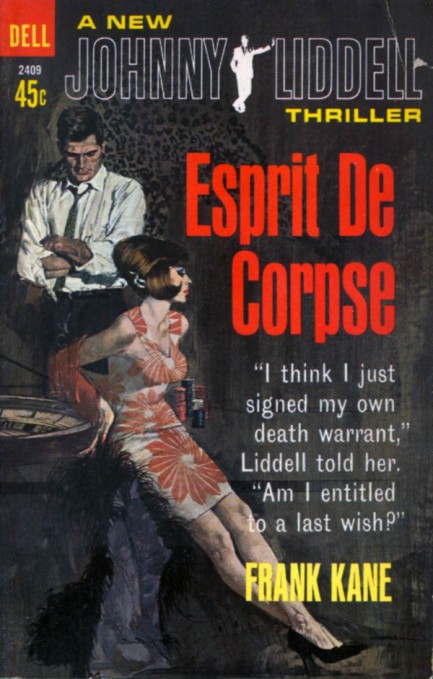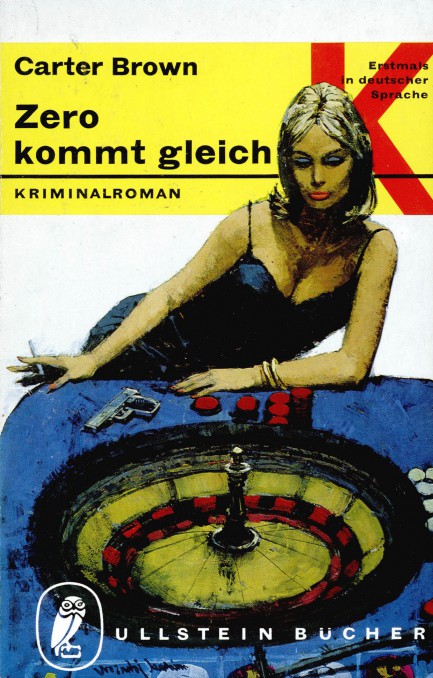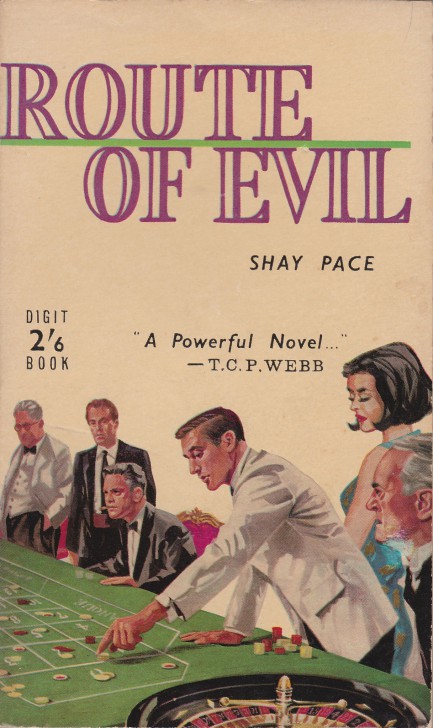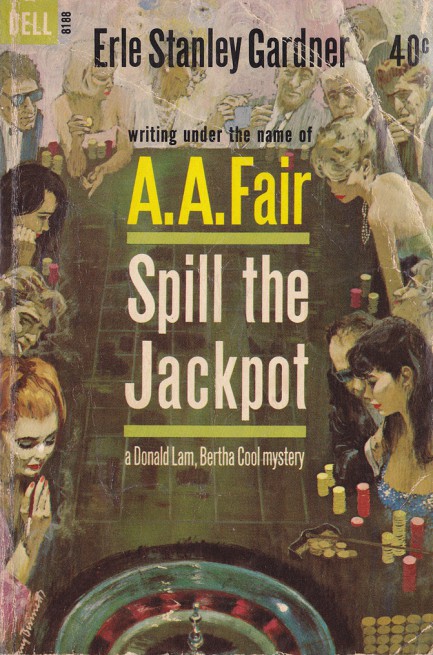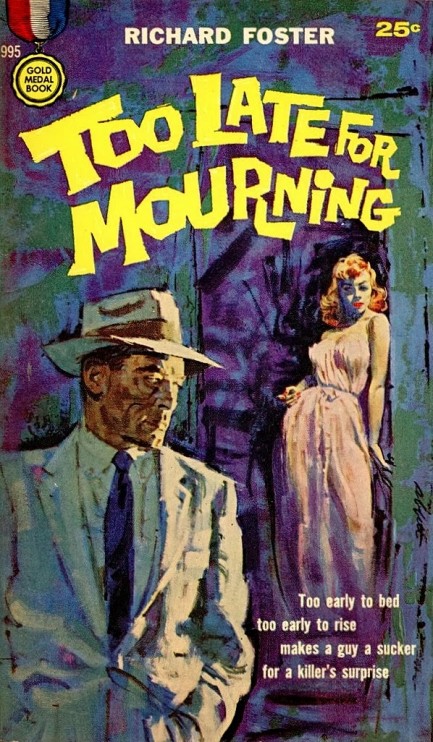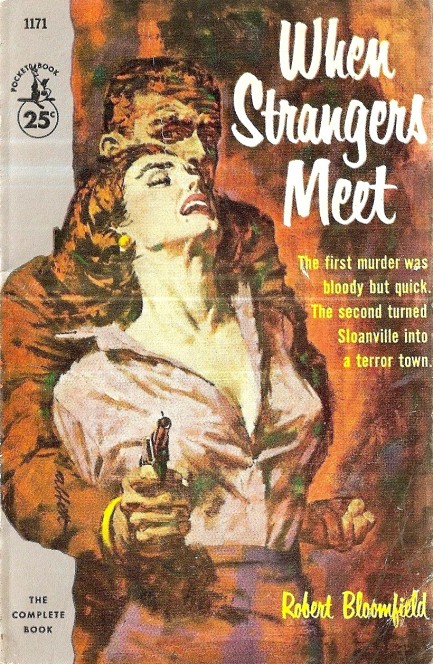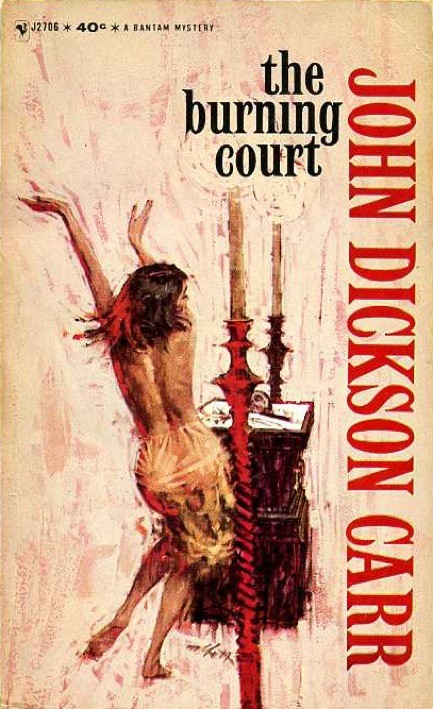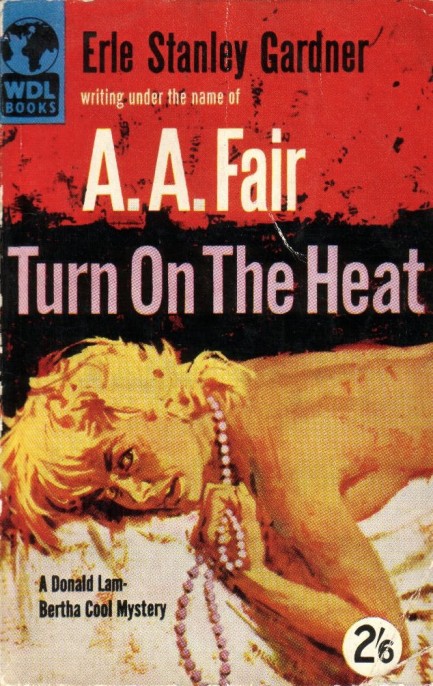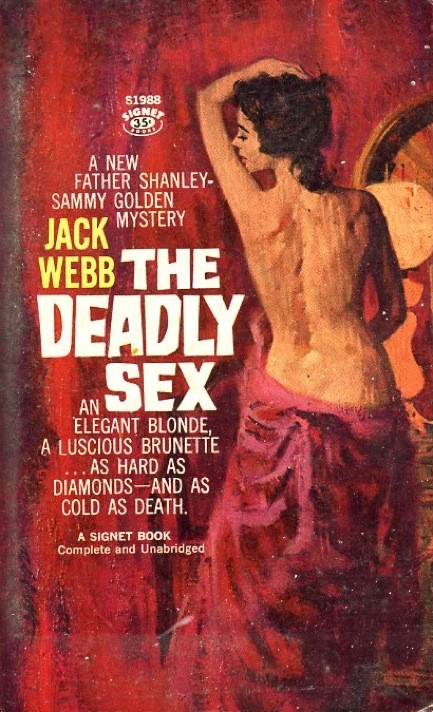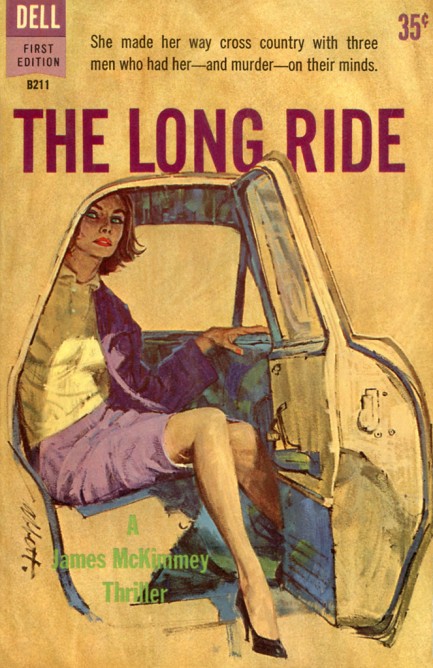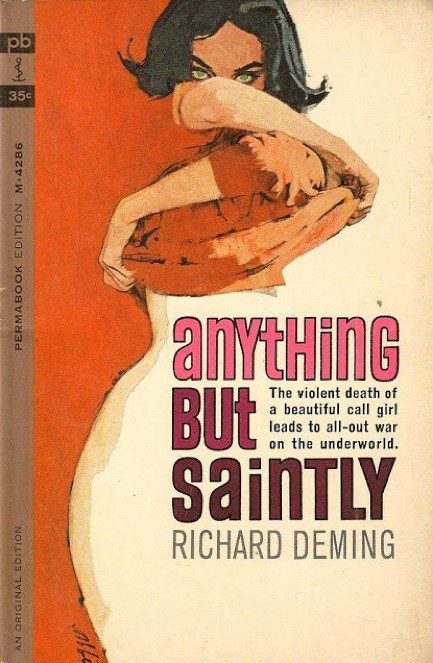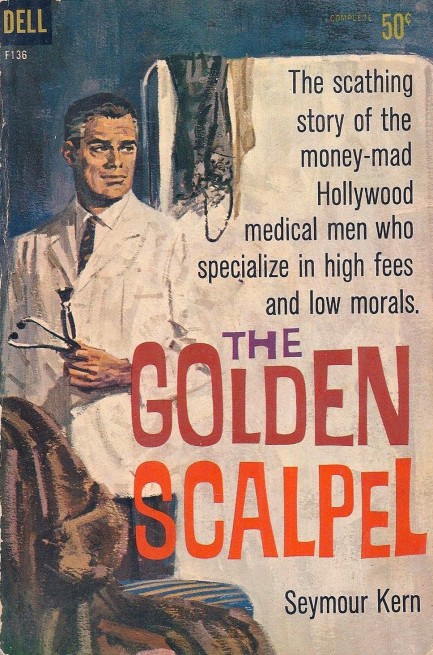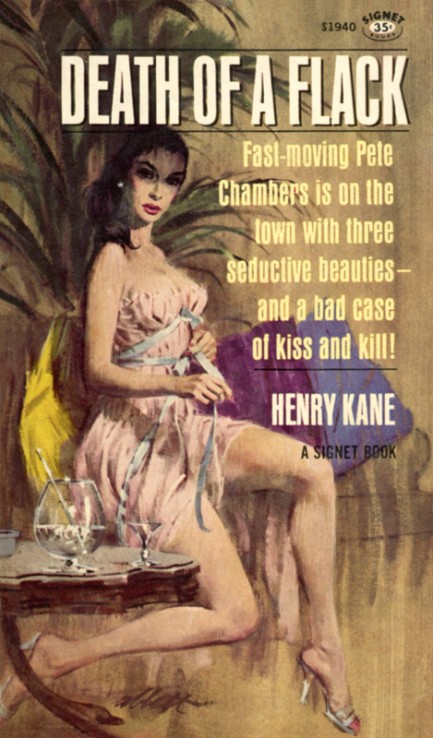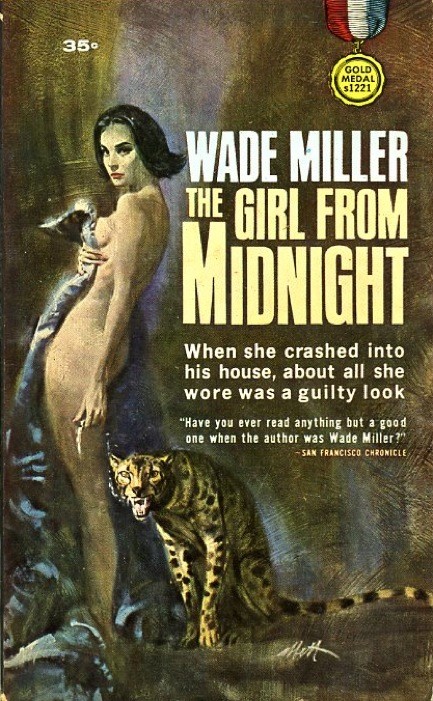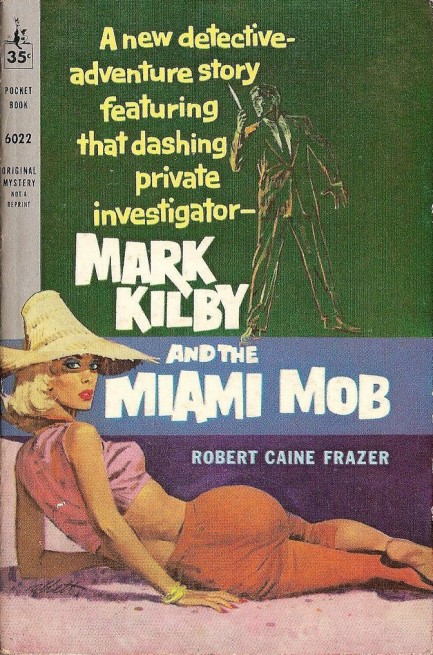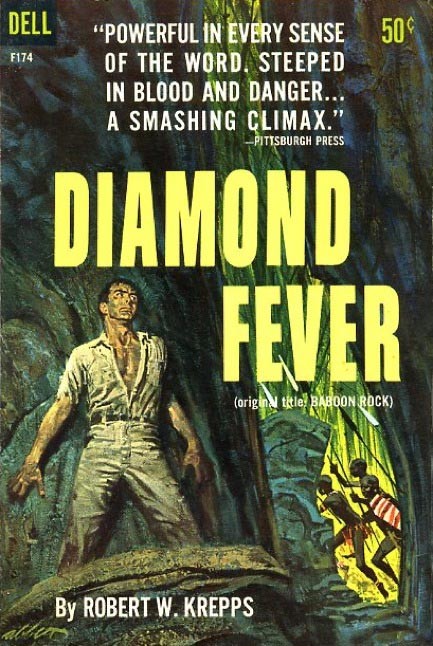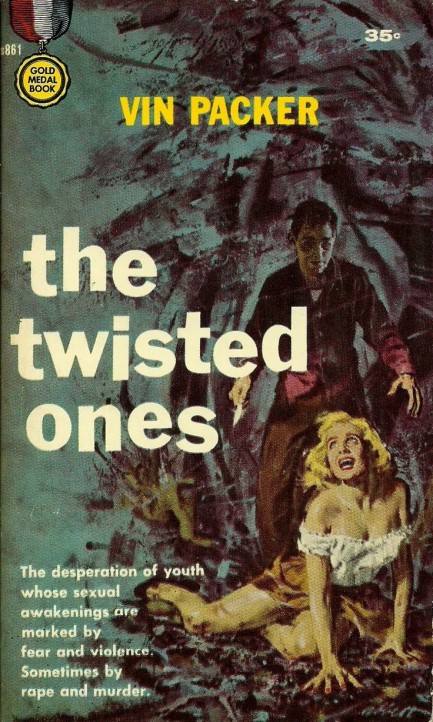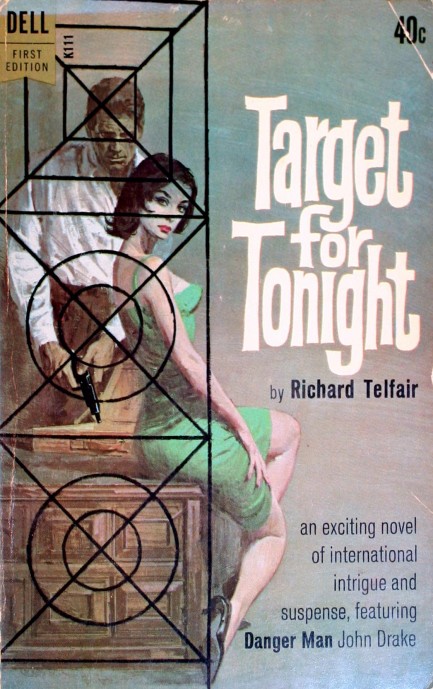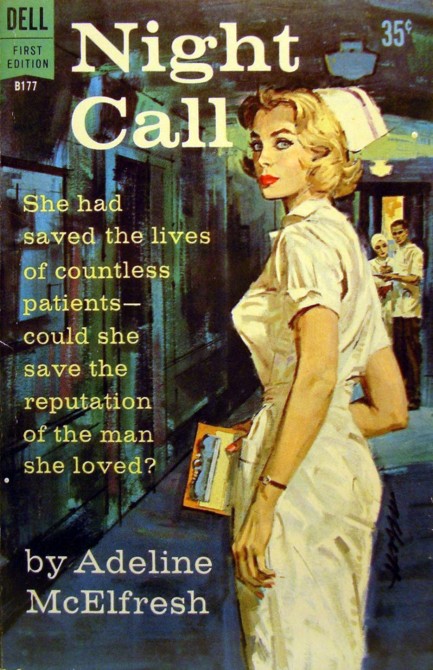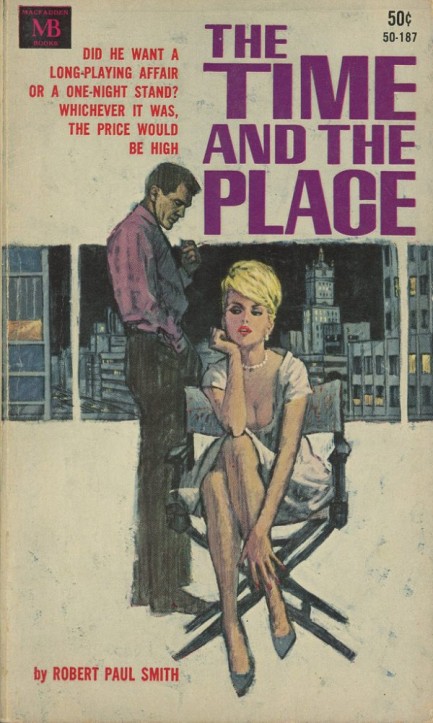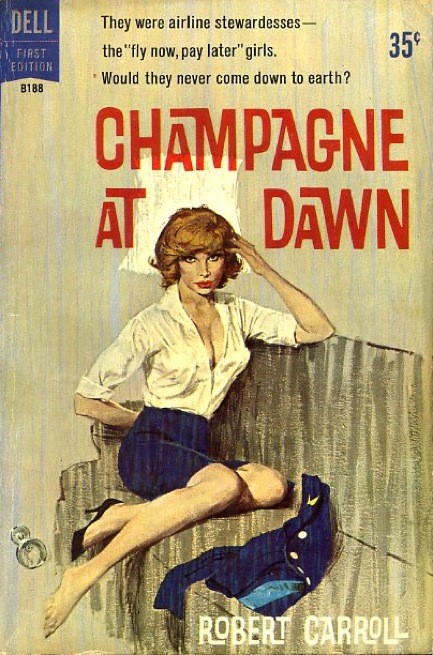 A case of the permanent blues. 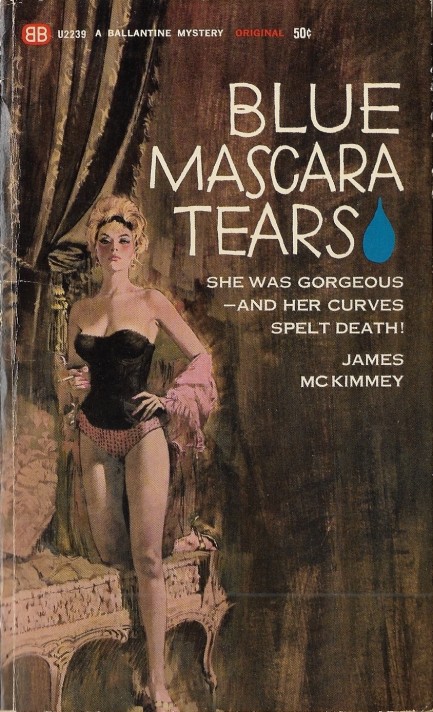
The lyrically titled Blue Mascara Tears is a dark one from James McKimmey, author of able efforts such as The Long Ride and Cornered. In the tale a San Francisco cop named Jack Cummings can't nail crime kingpin Knocko Cutter because the fix is in at the police department. Cutter also employs two vicious and efficient torturer-killers to silence witnesses, which works for a while, but as Cummings notes, “The collapse was coming from the fault in the structure itself.” In other words, the kingpin's sociopathic nature compels him to mistreat his most trusted henchmen, and even henchmen have a breaking point.
Two events are threaded through the plot: the robbery and murder of a man who had $65,000 in his possession; and the rape of a fourteen-year-old girl. The crimes quickly tie together, reveal twists and lies, and the kingpin's search for the missing cash presents the most meager of openings for Cummings to possibly nail him. But that's easier said than done when the police department is corrupt from top the bottom. Realizing the odds are long, Cummings grows more determined—and more willing to cross the line. It all leads to a climax that's expertly dragged out to the final paragraph.
And speaking of experts, the front on this 1965 Ballantine paperback was painted by Ron Lesser, one of the more accomplished illustrators of the mid-century period. Occasionally everything dovetails perfectly with cover design. Here you have excellent art from Lesser, a unique choice for a font, and a perfect blue teardrop, which we assume was an inspiration from Ballantine's art director. Add them together with McKimmey's story and Blue Mascara Tears is a through-and-through success.
 She knows there's trouble just around the corner. 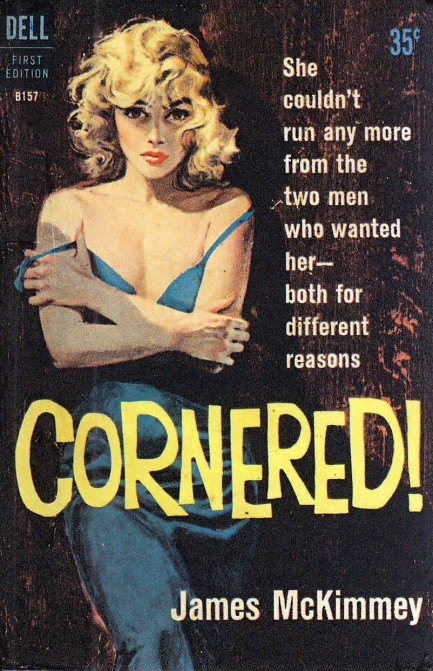
Harry Schaare painted this cover for James McKimmey's 1960 novel Cornered!, which features a woman who's not only cornered but cold, we guess. We last encountered McKimmey back in March when we read his roadgoing thriller The Long Ride, a book we enjoyed. This effort concerns everywoman Ann Rodick, who has fled to a small town to avoid retribution from the big city gangster she put on death row with her trial testimony. She's been hiding for more than a year, but as the date approaches for the gangster's meeting with the hangman, she senses that she's never been in greater danger. She's right about that—the ganster's most fervent wish is to know that Ann has died before he has, and a hitman has been tracking her for months. Now he's close, in the next county, then the next town, and soon, amongst her local acquaintances. But Ann also has two other serious problems: first, in her rush to change her identity she married an awful and abusive man; second, an amazingly sleazy neighbor has uncovered her secret and promises not to tell in exchange for sex. So while the paperback's cover says two men want Ann, actually three men do. Maybe the editors didn't read the book. Oh, and the town doctor is in love with her. So actually, four men want her.
The main character of this scenario can be argued to be the hitman, who has the unlikely name Billy Quirter. He's who the title of the book seems to refer to—McKimmey uses the word “cornered” to explicitly describe the situation in which Quirter finds himself, stuck in a small town with both his prey and the police alerted to his presence. But being cornered doesn't mean he can't get uncornered—all he has to do is fulfill his difficult mission. How he attempts to pull that off, and by what unexpected means he hopes to do so, is the drama that drives the latter half of the book.
Overall, we'd call Cornered! a success. It reminded us of a later author—Stephen King. We know that sounds strange, but McKimmey's broad stroke character development is very Kingian, flaws included. For example, the sleazy neighbor feels that if Ann knew enough to testify against a gangster it's because she must have been a denizen of organized crime herself, which, along with a dash of religious fervor, makes him believe she's evil and he has the right to demand anything he wishes from her. This type of fanaticism drives many King characters, from Margaret White in Carrie to Mrs. Carmody in The Mist to Annie Wilkes in Misery. We'd prefer more subtle motivation, but within the milieu constructed by McKimmey the character works. We've now had two good reads from him, which means we'll try another.
 I said I need to stretch my legs. I didn't say you need to stand there and stare at them while I do it. 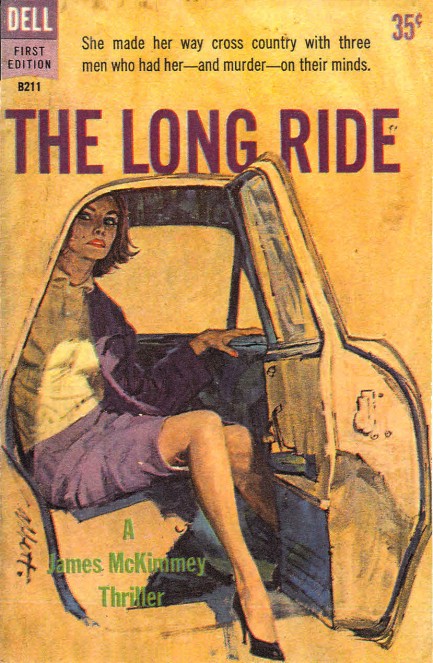
The cover blurb makes James McKimmey's The Long Ride sound as if the trip taken involves a total of one woman and three men. Actually there are seven travelers, headed cross country to San Fransisco, three of whom are involved in a bank robbery and murder in different ways. Obviously, there's the robber. There's also the person whole stole the loot from the robber. And there's—well, we won't say, because this is a good tale that deserves to surprise you. It reminded us tangentially of John D. MacDonald's The Damned, though the ensemble here is much smaller. However, the crucible aspect is similar. In The Damned everyone is stuck at a river crossing, whereas here everyone spends much of their time in a station wagon (with a motel or two mixed in). We read a review of this that said the three main characters ending up in the same car defied credulity. That person must have skimmed the book. It makes perfect sense that they're together, as does every other aspect of the plotting. The only flaw for us was an over-written lonely heart librarian, but otherwise we thought The Long Ride was a thrill ride, not long at all, if anything too short. This Dell paperback is from 1961 with leggy art from Bob Abbett.
|
 |

The headlines that mattered yesteryear.
2003—Hope Dies
Film legend Bob Hope dies of pneumonia two months after celebrating his 100th birthday. 1945—Churchill Given the Sack
In spite of admiring Winston Churchill as a great wartime leader, Britons elect
Clement Attlee the nation's new prime minister in a sweeping victory for the Labour Party over the Conservatives. 1952—Evita Peron Dies
Eva Duarte de Peron, aka Evita, wife of the president of the Argentine Republic, dies from cancer at age 33. Evita had brought the working classes into a position of political power never witnessed before, but was hated by the nation's powerful military class. She is lain to rest in Milan, Italy in a secret grave under a nun's name, but is eventually returned to Argentina for reburial beside her husband in 1974. 1943—Mussolini Calls It Quits
Italian dictator Benito Mussolini steps down as head of the armed forces and the government. It soon becomes clear that Il Duce did not relinquish power voluntarily, but was forced to resign after former Fascist colleagues turned against him. He is later installed by Germany as leader of the Italian Social Republic in the north of the country, but is killed by partisans in 1945.
|

|
|

It's easy. We have an uploader that makes it a snap. Use it to submit your art, text, header, and subhead. Your post can be funny, serious, or anything in between, as long as it's vintage pulp. You'll get a byline and experience the fleeting pride of free authorship. We'll edit your post for typos, but the rest is up to you. Click here to give us your best shot.

|
|







